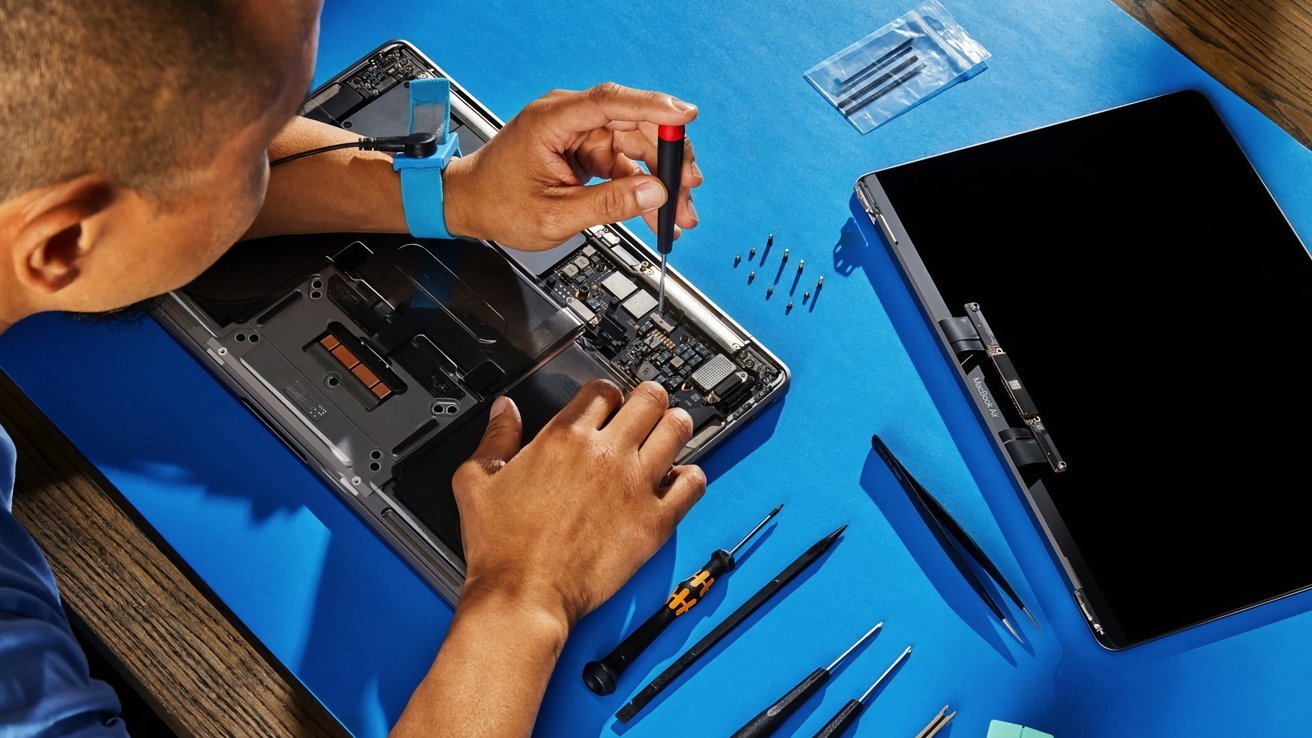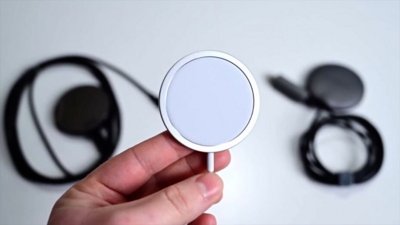Apple SVP of Hardware Engineering John Ternus has defended Apple's use of parts pairing, while also insisting the company still supports the use of third-party parts in repairs.
On Thursday, Apple expanded its self-repair programs to allow consumers to use parts pairing, a process that can allow legitimate second-hand components to be reused in repairs.
Under the process, which will be implemented in the fall, Apple said it will still block off components associated with a device that has Activation Lock enabled, typically meaning stolen parts.
Parts pairing is an issue that third-party repair outfits and Right to Repair advocates have complained about, with accusations of limiting user options and generating e-waste.
In an interview released after Apple's announcement conducted withTechCrunch, Apple's SVP of Hardware Engineering John Ternus defended Apple's practice.
"Parts pairing' is used a lot outside and has this negative connotation," Ternus insists. "I think it's led people to believe that we somehow block third-party parts from working, which we don't."
"The way we look at it is, we need to know what part is in the device, for a few reasons. One, we need to authenticate that it's a real Apple biometric device and that it hasn't been spoofed or something like that. Calibration is the other one."
Ternus declares that Parts Pairing is "not evil," and that it's really Apple making sure that users get the best quality from a module being installed in a device, by knowing what module is in there. "Why's that a bad thing?" he asks.
By way of example, Ternus explains that Touch ID and Face ID are critical pieces of infrastructure in a smartphone because of how a person's entire digital life is accessible via the device.
"We have no way of validating the performance of any third-party biometrics," Ternus admits. "That's an area where we don't enable the use of third-party modules for the key security functions. But in all other aspects, we do."
A long slog to repairability
According to Apple, the process to enable the announced repairability changes has taken around two years, with Ternus offering that his team has been working on repairability in the face of various inbound legislative changes.
"We want to make things more repairable, so we're doing that work anyway," the executive states. However, at the same time, Ternus proposes "Repairability in isolation is not always the best answer."
Commenting on how some people focus on repairability as being a goal to achieve, Ternus claims "The reality is repairability is a means to an end. The goal is to build products that last, and if you focus too much on [making every part repairable], you end up creating some unintended consequences that are worse for the consumer and worse for the planet."
Apple is also an organization that "fundamentally supports" the right for users to use third-party-sourced parts for repairs, but there must be transparency as well.
With hundreds of millions of iPhones in use that are second-hand or third hand, Ternus calls them a great way for people to use iPhone at a lower price point. However, he adds that it is important for consumers to know whether that device had been repaired, as well as what had been used in the repair.
"We don't block the use of third-party batteries," he confirms, but believes it is still important to tell consumers whether there's a genuine or third-party battery in use. The hardware chief hopes "that will motivate some of these third parties to improve the quality."
 Malcolm Owen
Malcolm Owen

-m.jpg)






 William Gallagher
William Gallagher
 Thomas Sibilly
Thomas Sibilly
 Andrew O'Hara
Andrew O'Hara
 Amber Neely
Amber Neely
 Marko Zivkovic
Marko Zivkovic

 William Gallagher and Mike Wuerthele
William Gallagher and Mike Wuerthele










14 Comments
Darth Vader and the Joker issued a joint statement that parts pairing is too evil even for them.
"Why is it a bad thing,"
Parts pairing is evil when the user has no say in the authorisation process and everything is in the hands of one company.
There is a lot of hazy commentary in his words.
Parts pairing can be a great thing when control is governed by the user and under good legislation.
That legislation should ideally cover true legal IDs when it comes to identifying the true legal owner of a device. A voluntary step for users that want an official stamp of ownership.
No one would argue that stopping known 'non-clean' parts from working is a bad thing.
No one would argue that knowing which parts are non-original is a bad thing.
The problem is that Apple wanted to take decisions for everyone and in its own interest.
This particular move should never have been an' add-onv. When parts pairing was first put on the table it should have ended up in the design.
Repairabilty should have been a design goal.
No out of warranty core part should have to go back to Apple. Not even under the guise of a credit. The broken part belongs to the user and there may well be a better end point for it elsewhere.
Whew boy nothing to bring out the crank sentiment than DIY repair articles. While I personally doubt any of the complainers are cracking open obsoleted iPhones to insert replacement parts (despite the outrage…outrage, I say!), it also seems you didn’t read the article. They enable third-party parts except in the case of the security modules. The reason why should be obvious.
Everything else, they do.
In no way would I wish to buy a phone where they give up security to enable the ultra, ultra micro-niche of people who want to get replacement biometrics for an obsoleted model. Nope, nope. You want that? Go buy a knockoff and knock yourself out.